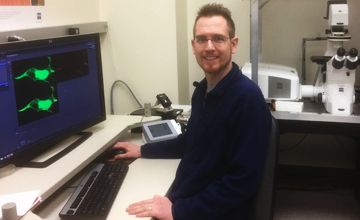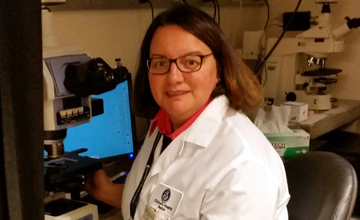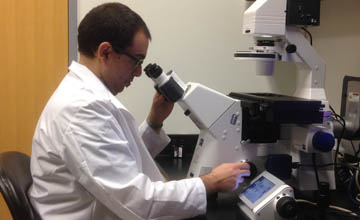
Albert La Spada, professor of pediatrics, cellular & molecular medicine, neurosciences, and biological sciences at the University of California, San Diego, in La Jolla, Calif., was awarded an MDA research grant totaling $300,000 over three years to study disease mechanisms in spinal-bulbar muscular atrophy (SBMA).
X-linked SBMA is an inherited neuromuscular disorder characterized by lower (spinal cord) motor neuron degeneration. SBMA is caused by expanded sections of DNA called CAG/polyglutamine repeats in the androgen receptor gene.
La Spada has focused on defining the cellular and molecular basis of SBMA by using a variety of approaches, including neurons grown in culture, genetically engineered mice, and “stem cell” models derived from SBMA patient skin cells that are reprogrammed to become pluripotent stem cells and which can then be differentiated into motor neurons and skeletal muscle.
With colleagues, La Spada has shown that expression of mutant androgen receptor protein in skeletal muscle leads to muscle dysfunction, which could be one of the causes SBMA. The team now looks to determine how this skeletal muscle dysfunction might differ from the disease process occurring in motor neurons and elucidate how these diseases processes could lead to SBMA.
If successful, the work could pinpoint tissue-specific targets for therapy development, with implications not only for SBMA, but for other motor neuron diseases as well, including spinal muscular atrophy and ALS.
Funding for this MDA research grant began Feb. 1, 2017.
Grantee: Albert La Spada, M.D., Ph.D.
Grant type: Research Grant
Award total:
Institution:
Country:
























